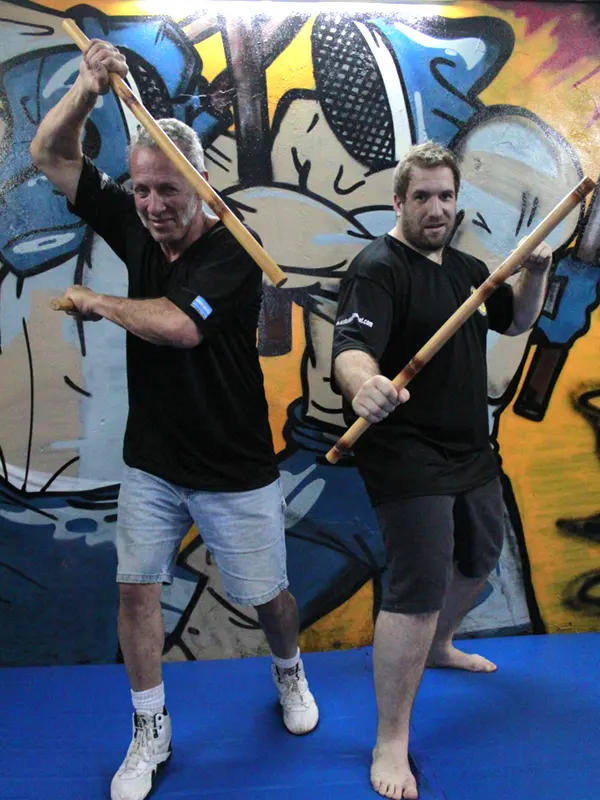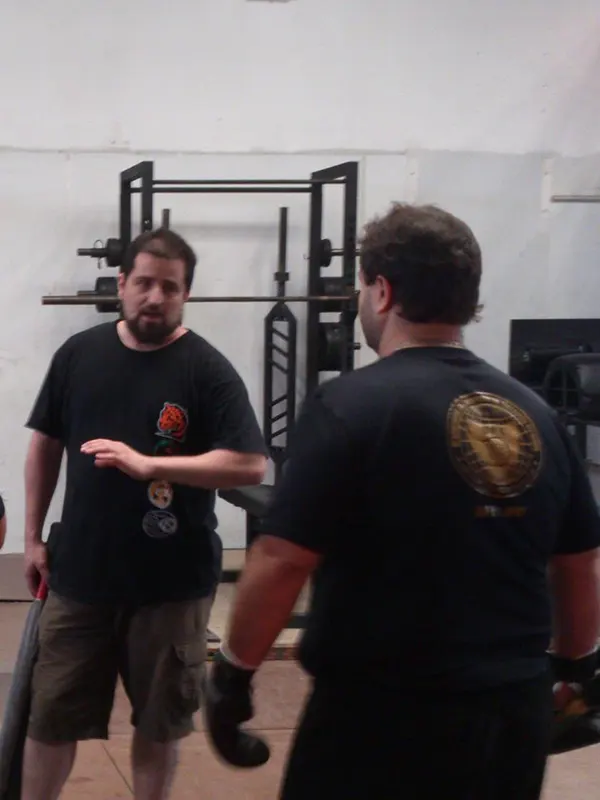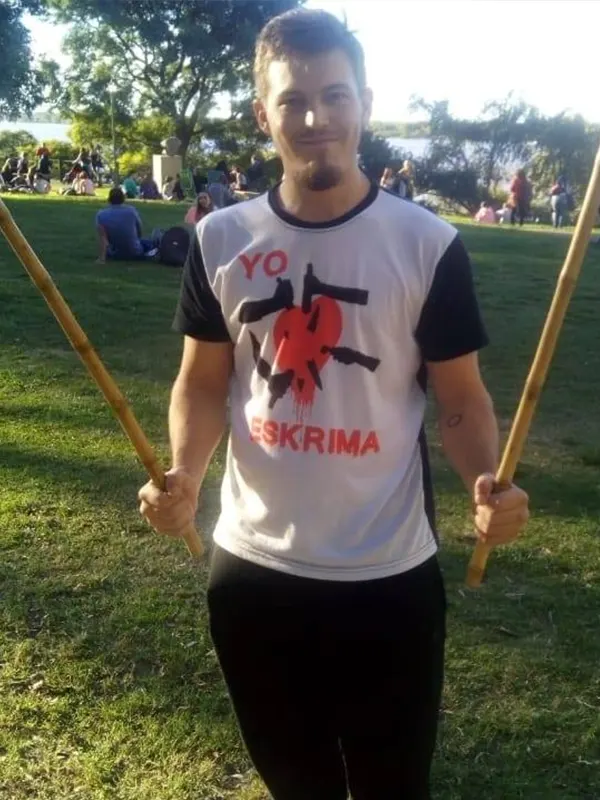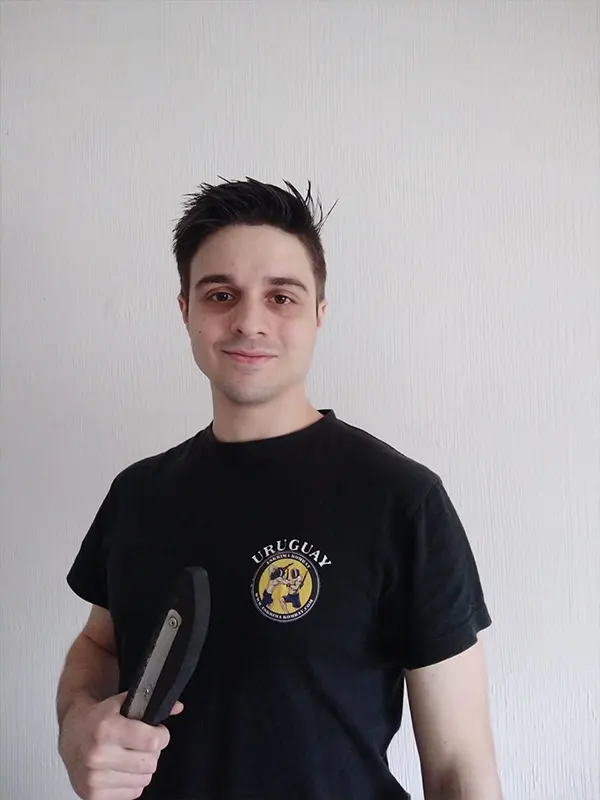

Eskrima
kombat.
Combina sistemas como la Esgrima Medieval Española, el Kali Filipino, el Brazilian Jiu Jitsu, el Muay Thai, el Jeet Kune Do, el Jogo do Pau, el Krabi Krabong y el Zulu Stick Fighting.
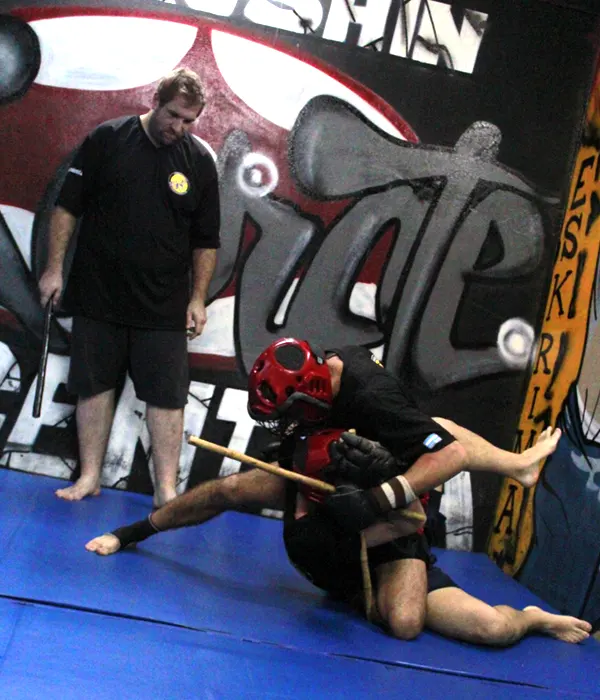
Centro de Enseñanzas
Listado de instructores que enseñan Eskrima Kombat (Bastón Corto, Bastón Largo, Doble Bastón, Cuchillo y Machete).
Quiénes somos
Eskrima Kombat nace para establecer un sistema de combate, arte marcial y defensa personal con armas en Sudamérica, específicamente se trabaja con Bastón Corto, Doble Bastón, Bastón Largo, Cuchillo y Machete. También se pueden trabajar otras armas, combinación entre las mismas y mano vacía, pero con el mismo patrón de movimientos de combate establecido por las armas principales. El arte marcial se englobaría dentro de lo que se llama “Stick Fighting”.
Las bases del sistema son la experiencia y codificación de los combates de los Dog Brothers, básicamente por parte de Guro “Lucky Dog” Burton Richardson –Battlefield Kali– como así también por Guro “Crafty Dog” Marc Denny –Dog Brothers Martial Arts” (DBMA)-.
Ambos fueron alumnos de Guro Dan Inosanto, un artista marcial estadounidense de ascendencia filipina conocido a nivel mundial por su maestría en el Kali Filipino (Arnis / Eskrima) y en varios estilos de artes marciales tradicionales, exóticas, y modernas. Es uno de los herederos legales del estilo Jeet Kune Do creado por el artista marcial Bruce Lee.
La combinación resultante en Eskrima Kombat tiene sus raíces en diferentes sistemas como la Esgrima Medieval Española, el Kali Filipino, el Brazilian Jiu Jitsu, el Muay Thai, el Jeet Kune Do, el Jogo do Pau, el Krabi Krabong y el Zulu Stick Fighting.
Se ha desarrollado un método de entrenamiento propio, basado en bastones de acero, denominado Eskrima Kombat Gladiator, donde se potencia principalmente la resistencia física. Desde el comienzo, Eskrima Kombat organiza torneos de combate con palos, cuchillos y machetes, como así también seminarios internacionales. Se destaca que es uno de los pocos estilos de sistemas de Stick Fighting que comparte sus técnicas completamente en la web.
Conocé las reglas
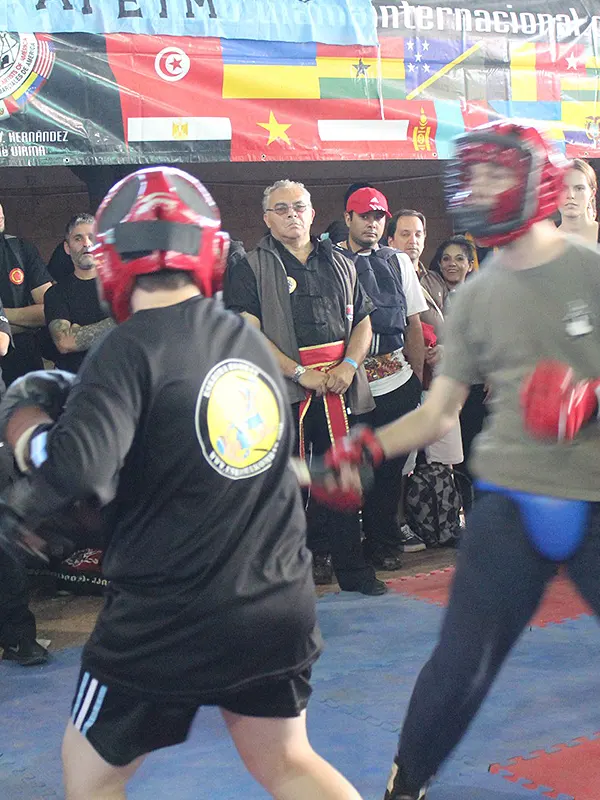
Cuchillo / Machete al punto
Los combates son a 5 puntos o un minuto de tiempo. El competidor que hace primero 5 puntos o el que más puntos realizó al término del minuto es el ganador del combate.
En caso de empate, se continúa por el sistema de muerte súbita, significando que gana el competidor que genera primero un punto.

Light Contact Stick Fighting
Los competidores deberán ser mayores de 14 años, o deberán tener autorización del respectivo padre o tutor que se encuentre ejerciendo la patria potestad.
Los competidores deberán firmar una responsabilidad civil para poder participar en la categoría.
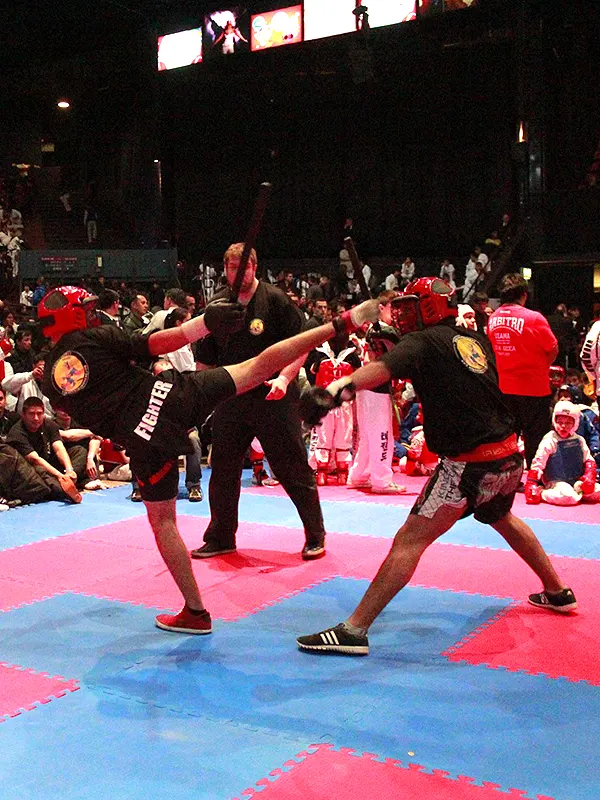
Full Contact Stick Fighting
Los competidores deberán ser mayores de 18 años, o deberán tener autorización del respectivo padre o tutor que se encuentre ejerciendo la patria potestad.
Los competidores deberán firmar una responsabilidad civil para poder participar en la categoría.
arte marcial y defensa personal
Ambos fueron alumnos de Guro Dan Inosanto, un artista marcial estadounidense de ascendencia filipina conocido a nivel mundial por su maestría en el Kali Filipino (Arnis / Eskrima) y en varios estilos de artes marciales tradicionales, exóticas, y modernas. Es uno de los herederos legales del estilo Jeet Kune Do creado por el artista marcial Bruce Lee.
- Eskrima Kombat Gladiator
- Esgrima Medieval Española
- Kali Filipino
- Brazilian Jiu Jitsu
- Muay Thai
- Jeet Kune Do
- Jogo do Pau
- Krabi Krabong
- Zulu Stick Fighting
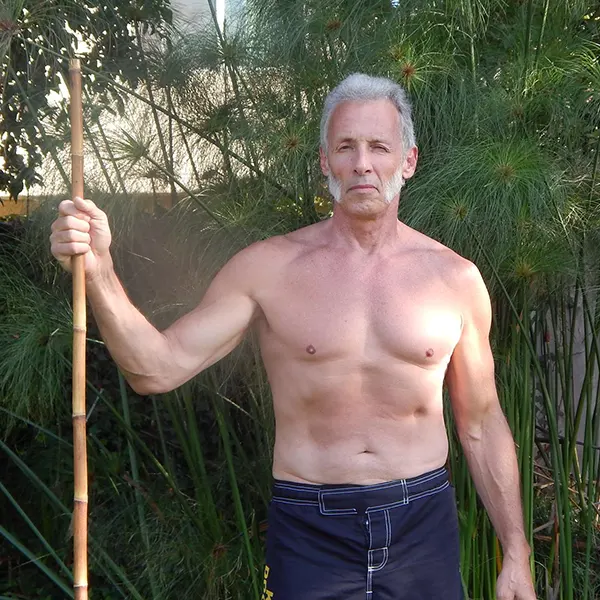
Dog Brothers
Marc Denny
Guro Marc “Crafty Dog” Denny es la “fuerza guía” de “The Dog Brothers” y el fundador e instructor principal de la organización de artes marciales Dog Brothers, así como uno de los luchadores originales de primer nivel.
Battlefield Kali
Burton Richardson
En 1997 comenzó a hacer pruebas de presión de todo lo que había aprendido y se comprometió a enseñar solo técnicas que tuvieran éxito en combates duros o peleas.
Si no estamos preparados para esa resistencia, ninguna técnica, por muy meritoria que sea, será aplicable.
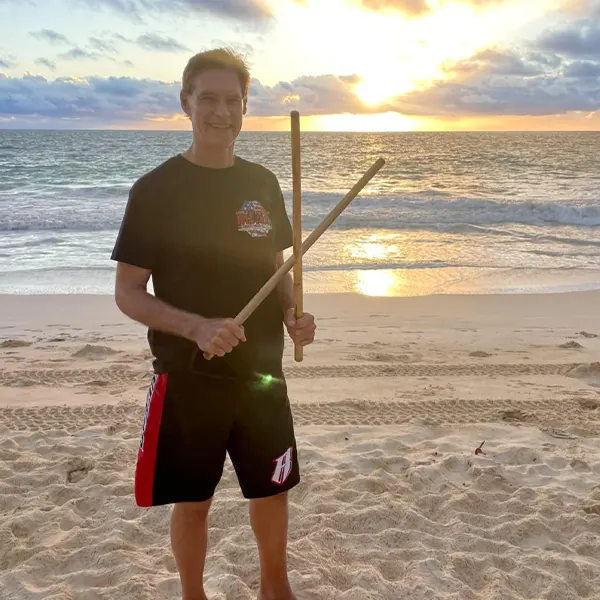
Centros de enseñanza
Listado de instructores que enseñan Eskrima Kombat (Bastón Corto, Bastón Largo, Doble Bastón, Cuchillo y Machete).
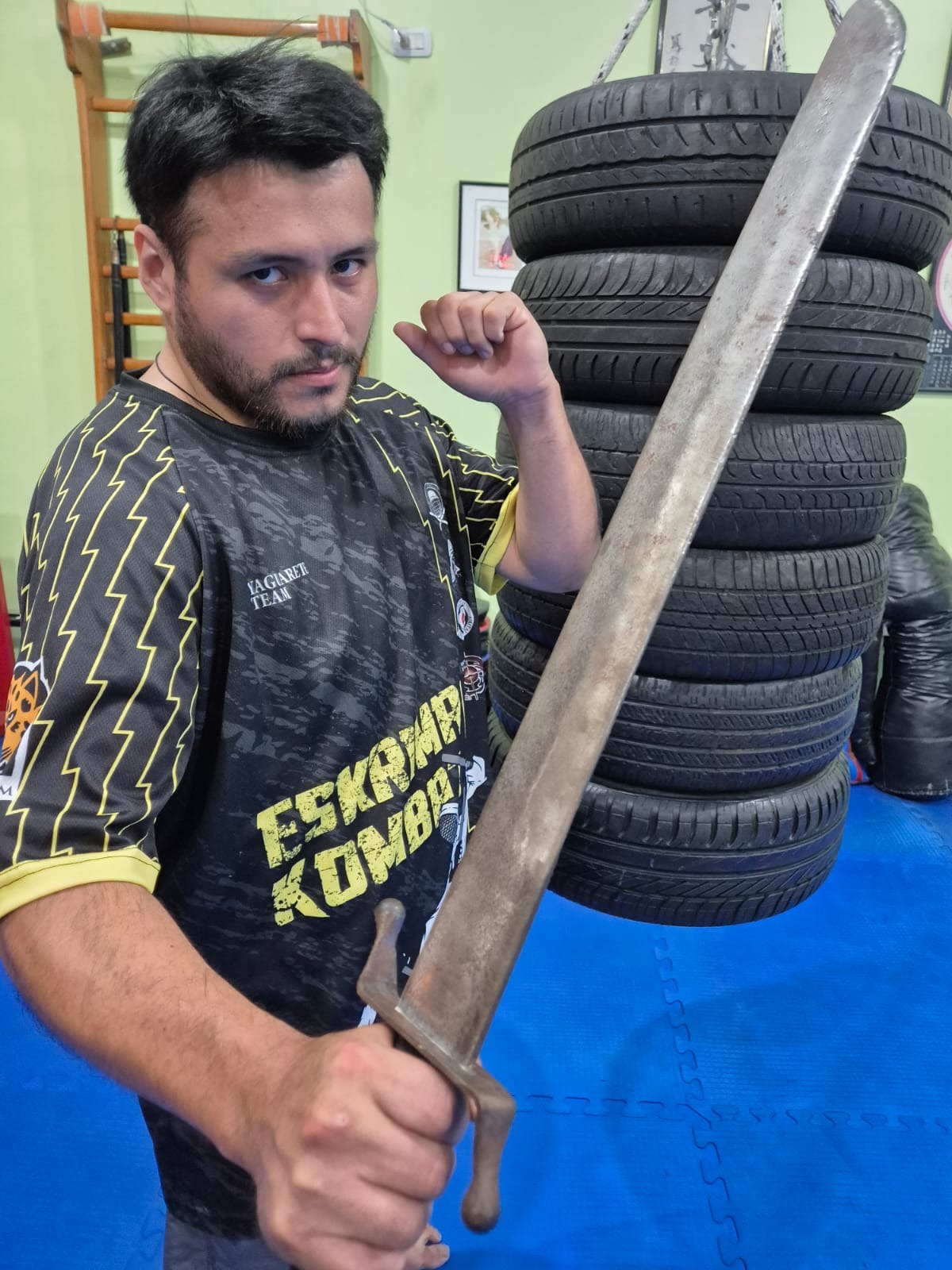
Brian Alarcon
Disciplinas: Eskrima Kombat, Combate Medieval
Nombre de escuela:
Dirección: Lavalle 918 1º Piso – Microcentro – Ciudad de Buenos Aires – Argentina
Días y Horarios: Martes y Jueves de 09:00 y 19:00hs
Tel: +54 9 11 2795-2597
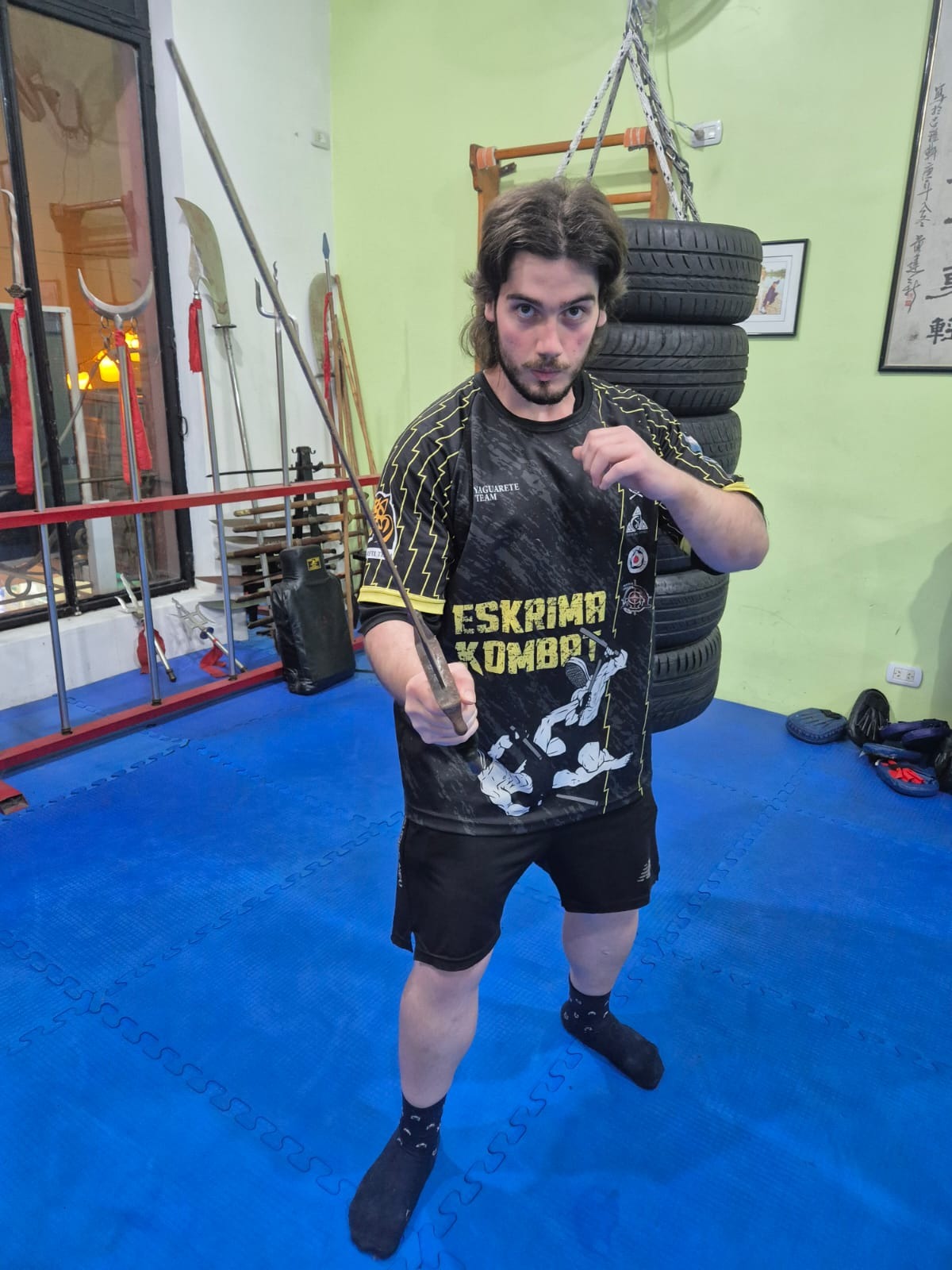
Mateo Mostaccio
Disciplinas: Eskrima Kombat, Combate Medieval
Nombre de escuela:
Dirección: Circulo Siciliano calle 71 N°429 Entre 3 Y 4. – Sede La Plata – Argentina
Días y Horarios: Martes y Jueves de 8:00 a 10:30 Y 20:30 a 23:00 Hs. Miércoles de 20:30 a 23:00 Hs. y los Sábados de 15:00 a 18:00 Hs
Tel: +54 9 2214 40-5674
Todo lo que necesitas saber .


Changmmokwan Philippines Negros Island Inc. (CMKPNII) Rank Promotion Examination, March 22, 2025, Ayala Malls Capitol Central, Bacolod City
PHOTO CAPTION: Melvin Q. Dayon of Black Knights Taekwondo Academy (BKTA)-Bago (Crosstrains at EC Taekwondo), son of Elvie Dayon &

Changmmokwan Philippines Negros Island Inc. (CMKPNII) Rank Promotion Examination, March 23, 2025, Ayala Malls Capitol Central, Bacolod City
Rhaell Ayz M. Briz of Black Knights Taekwondo Academy (BKTA)-Bago (since December 2024), son of Mariella Montilla, with International Master

Remembering the Legacy of Dr. Henry Florida Funtecha (1947-2009) by: James U. Sy Jr., Faculty Member, TUPV
Updated Version 2.0 of the original piece “A Memorial to Dr. Henry F. Funtecha (1947-2009)” published in the Visayan Filipino
Copyright 2025 © Todos los derechos reservados.
